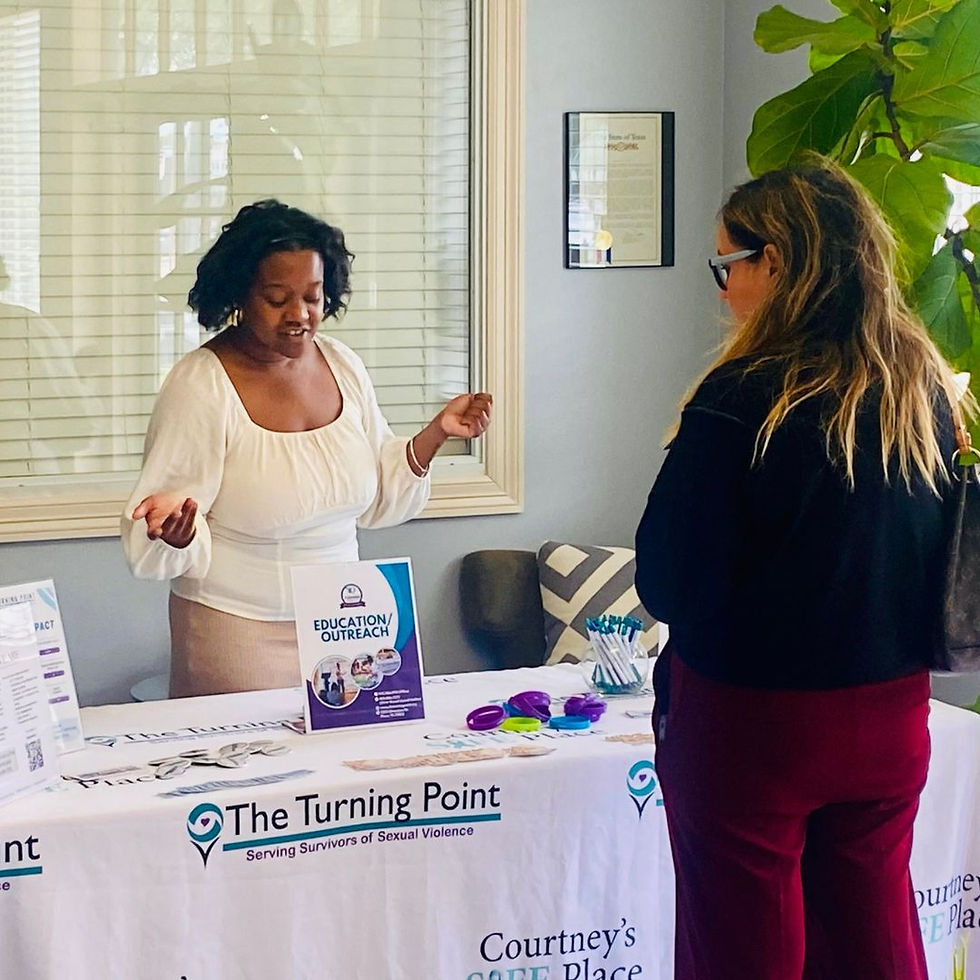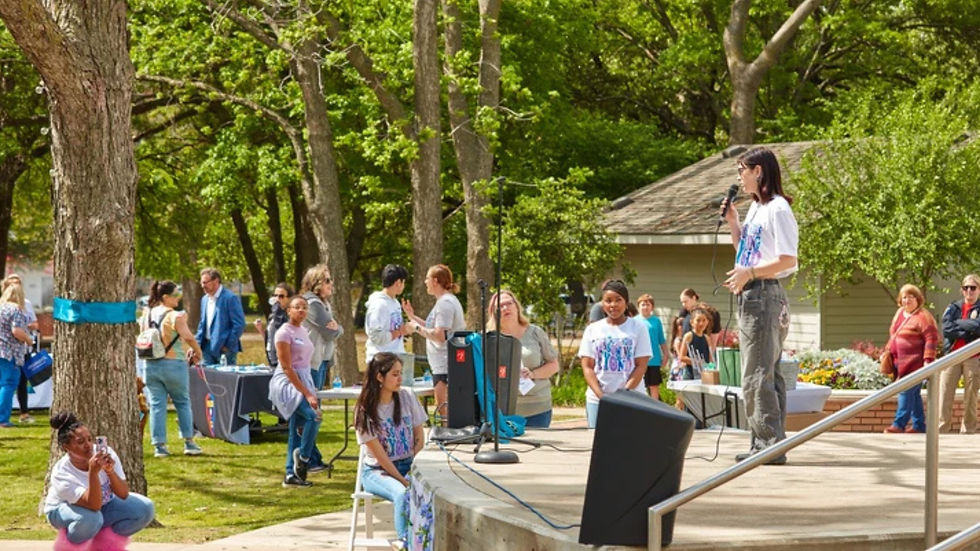10 Ways Your Community or Organization Could Advocate for Survivors of Sexual Violence
- Jonathan Thompson
- Aug 5, 2025
- 3 min read
Updated: Aug 6, 2025

Sexual violence is a deeply traumatic and life-altering experience that affects people of all ages, genders, and backgrounds. In every community—whether visible or not—there are survivors quietly navigating the path of healing. Many of them are our neighbors, classmates, coworkers, and even loved ones.
Being aware of sexual violence survivors around you isn’t just compassionate—it’s essential to creating a safe and supportive society.
Communities play a vital role in helping survivors feel seen, heard, and protected. Civic groups, social organizations, and local clubs have a unique ability to amplify survivor voices, raise awareness, and foster healing environments.
If you’re wondering how your group can make a meaningful impact, here are 10 powerful and practical ways to advocate for survivors of sexual violence:

1. Host Awareness and Education Events
Organize open community forums, panel discussions, or workshops to raise awareness about consent, boundaries, and how to support survivors. Inviting expert speakers and survivors (when they're willing) fosters learning and builds empathy.
2. Partner with Local Advocacy Organizations
Collaborate with sexual assault crisis centers like The Turning Point, which serves North Texas with 24/7 crisis response, trauma therapy, legal advocacy, and prevention education. Partnerships can include volunteer opportunities, awareness events, or donation drives.
3. Provide Trauma-Informed Training
Equip your organization’s staff, volunteers, and leadership with trauma-informed care training. This ensures they know how to respond to disclosures and engage survivors respectfully without retraumatization.
4. Launch a Public Awareness Campaign

Use your social media platforms, newsletters, or physical space to launch a campaign promoting facts about sexual violence, debunking harmful myths, and encouraging survivor support. Messages like “We Believe Survivors” go a long way in shifting community culture.
5. Create Safe Spaces for Survivors
Facilitate or host support groups, healing circles, or quiet reflection areas where survivors can gather confidentially. These spaces should be optional, inclusive, and led by trained professionals when possible.
6. Advocate for Survivor-Friendly Policies
Take a stand by supporting legislation and public policies that protect survivors’ rights, ensure access to forensic care, and prevent violence. Encourage your members to contact local representatives and be a voice for change.
7. Build and Share a Resource Hub
Create a visible, easy-to-access list of local crisis hotlines, mental health providers, shelters, legal aid, and medical resources. Offer this in printed and digital formats to reach as many people as possible—confidentially.

8. Recognize National Awareness Dates
Participate in observances such as Sexual Assault Awareness Month (April), Denim Day, or Take Back the Night. These events build momentum, educate the public, and honor survivors’ stories and strength.
9. Organize Fundraisers for Survivor Services
Host charity events—like walk-a-thons, benefit concerts, or online fundraisers—with proceeds supporting local advocacy groups. Be transparent about where funds go and how they directly help survivors in your community.
10. Address Harmful Culture Within Your Group
Take proactive steps to challenge harmful language, jokes, or behaviors that normalize sexual violence. Foster a culture of respect, accountability, and zero tolerance for abuse or harassment in any form.

Why This Matters
Sexual violence doesn’t just affect individuals—it ripples through families, workplaces, schools, and neighborhoods. When survivors don’t feel safe to come forward, their pain remains hidden. But when communities stand together in education, empathy, and action, healing becomes possible—not just for survivors, but for everyone.
Support the Mission of The Turning Point

Located in North Texas, The Turning Point is a leading nonprofit that has spent over 40 years walking alongside survivors of sexual violence. They offer:
24/7 crisis response
Trauma-informed counseling and therapy
Legal advocacy and support
Community-based forensic nursing care
Prevention education for schools and organizations
As the only organization in the region with an on-site forensic clinic and a mobile forensic nursing team, The Turning Point serves 26 hospitals and two college health centers—making healing accessible across the region.
To learn more or get involved, visit: https://www.theturningpoint.org
Final Thought
Every survivor deserves to feel safe, supported, and empowered. Your group or organization has the power to be a catalyst for change. Let your actions, words, and commitments reflect a community that stands with survivors—today and every day.




Comments